Iverheal 6mg Ivermectin Tablets
$45.00 – $105.00Price range: $45.00 through $105.00
Iverheal 6 is used to treat parasitic infections. It contains Ivermectin, which helps remove parasites by affecting their nervous system.
| Pack Size | Price | Price / Unit | Quantity | |
|---|---|---|---|---|
| 100 Tablets | $45.00 | $0.45/ unit | ||
| 200 Tablets | $80.00 | $0.40/ unit | ||
| 300 Tablets | $105.00 | $0.35/ unit |
Looking for bulk / B2B pricing? | Send Inquiry |

| SKU | 11028 |
| Manufacturer | Healing Pharma India Pvt Ltd |
| Categories | Antiparasitic |
| Delivery Time | 10 - 14 Working Days |
| Strength | 6mg |
About Iverheal
Iverheal 6 is a branded form of the medicine called ivermectin. It comes in a tablet form, and each tablet contains 6 mg of the active ingredient. Ivermectin belongs to a group of medicines called antiparasitic drugs.
These medicines are made to kill or stop the growth of harmful parasites and worms that live in the human body. Parasites can cause many health problems, like stomach pain, infection, skin issues, or fever.
Iverheal 6 is usually taken by mouth with a glass of water. This makes it easy for patients to use. Doctors prescribe this medicine after checking the type of infection and your health condition. It is very important to take the correct dose and use it only for the right number of days.
There are many companies that make ivermectin tablets. Iverheal 6mg is one of the most commonly available versions. Because it is easy to find and has a standard dose, many doctors choose it for their patients. It offers a reliable and safe form of ivermectin, which helps treat parasitic infections effectively.
Uses of Iverheal 6
Ivermectin 6 Mg Tablet Uses include the treatment of different types of parasitic infections, such as:
- Strongyloidiasis: This is a threadworm infection of the intestine.
- Onchocerciasis: Also known as river blindness. It is caused by worms spread through blackfly bites.
- Other Worm Infections: Depending on local approvals and your doctor’s advice.
- Some Skin Infections: Caused by mites in certain forms and doses.
Iverheal Review sections and experts explain that Iverheal 6 is not approved for treating viral infections. Using this medicine for conditions it is not meant for can be harmful. Always follow your doctor’s instructions about when and how to use Iverheal 6.
Available Dosage of Iverheal 6
Iverheal 6 Mg Tablet means that each tablet has 6 milligrams of ivermectin. But the actual dose you need depends on your body weight and the infection being treated. Doctors follow weight-based rules to decide the right dose. Some common forms of ivermectin tablets are:
Your doctor will tell you which dosage is best for your condition.
Lasting Duration of Iverheal 6
The lasting duration of the medicine depends on the type of infection:
- For many worm infections, a single dose calculated by weight is enough. The worms start to die, and symptoms improve over days or weeks.
- For infections like onchocerciasis (river blindness), repeated or community doses may be needed over time.
- The drug stays in the human body for a few days, but its action lasts longer because it paralyzes or kills the worms.
- If symptoms return, the doctor may advise follow-up tests or more doses.
Always ask your doctor how long it will take to feel better and whether more doses will be needed.
How Does it Work?
Iverheal 6 Mg Tablet works by attaching to special channels on the parasites’ nerve and muscle cells. These channels are called glutamate-gated chloride channels. When ivermectin opens these channels, chloride ions enter the parasite’s cells. This makes the cells too negative and weak. The parasite becomes paralyzed, cannot move, feed, or survive, and eventually dies.
The human body then removes the dead parasites naturally. Humans have different types of these channels, so the medicine affects parasites more strongly than humans. This is why Iverheal 6 can be used safely when taken at the correct dose.
Benefits of Iverheal 6
Here are the common benefits people get when they take Iverheal 6 for the right condition:
- Kills Parasitic Worms: It kills the parasitic worms that cause illness, reduces the number of worms and their symptoms (stomach pain, diarrhea, skin problems).
- Fast Action: Many people see improvement in symptoms in days to a few weeks.
- Single-Dose Options: For some infections, one dose is sufficient, which makes treatment simple.
- Well-Studied Medicine: Ivermectin has been used for decades and is on the WHO list of essential medicines for parasitic diseases in many settings.
Remember, these benefits occur when Iverheal 6mg is used appropriately for infections that respond to ivermectin and under a doctor’s guidance.
Possible Side Effects of Iverheal 6
Like all medicines, Iverheal 6 may cause some side effects. Most side effects are mild and go away by themselves, but a few can be serious. Common side effects include:
- Dizziness or lightheadedness
- Nausea
- Vomiting
- Stomach pain
- Fatigue or weakness
- Headache
- Skin reactions, such as rash or itching
In some cases, especially when many parasites are dying inside the body, a reaction called the Mazzotti reaction may occur. This may cause fever, fast heartbeat, swollen glands, or low blood pressure. These symptoms are usually temporary but should be monitored.
Rarely, some people may have serious allergic reactions. If you have trouble breathing, swelling, or vision problems, get emergency medical help. Always report any side effects to your doctor.
Warning and Precautions
Before taking Iverheal 6 Mg Tablet, tell your doctor if:
- Allergies: Allergies to ivermectin or related drugs.
- Pregnancy and Breastfeeding: Discuss with your doctor. Ivermectin is usually used only when the doctor thinks the benefit outweighs the risk; breastfeeding requires special advice.
- Liver Problems: Your doctor may want to check liver function first, because ivermectin is processed by the liver.
- Other Medicines: some drugs can interact with ivermectin (for example, medicines that strongly change liver enzymes). Always list all medicines, vitamins, and herbal products you take.
- Neurological Disease: If you have certain nervous system conditions, discuss risks with your doctor.
Public health authorities, such as the FDA, clearly state that ivermectin should not be used to treat or prevent COVID-19. The evidence does not support this use, and taking veterinary versions of ivermectin can be very dangerous. Use Iverheal 6 only for approved parasitic infections and with medical advice.
Safety Advice
Here are some safety tips while using Iverheal 6:
- Only use the medicine when prescribed by a doctor. Do not take ivermectin meant for animals.
- Follow the exact dose and schedule given by your doctor.
- Take the medicine with or without food, depending on your doctor’s instructions.
- If you feel dizzy, do not drive or operate any machines.
- Store the Iverheal 6 tablets in a cool, dry place away from children.
- Go for follow-up check-ups and tests, if your doctor asks you to.
‘If you are unsure about anything, ask your doctor instead of guessing or taking extra doses.
FAQs – Frequently Asked Questions
1. What is the Main Use of Iverheal 6?
The main use is to treat certain parasitic worm infections like strongyloidiasis and onchocerciasis. Your doctor prescribes it when tests or clinical signs suggest one of these infections.
2. Is Iverheal 6 the Same as Ivermectin 6 mg?
Yes, Iverheal 6 is a brand name formulation containing 6 mg of ivermectin, so it is an ivermectin 6 mg tablet.
3. How Many Tablets Should I Take?
The number of tablets depends on your weight and the infection. A doctor calculates the dose in micrograms per kilogram (µg/kg). Do not self-dose get a prescription.
4. Are There Any Interactions with Other Medicines?
Yes, ivermectin can interact with drugs that affect liver enzymes or the nervous system. Tell your doctor about all medicines you take.
5. What If I Miss a Dose?
For single dose treatments, missing a dose means you should contact your doctor they may advise a new single dose or a plan for follow-up. For repeated doses, take it as soon as you remember unless it’s almost time for the next dose; ask your prescriber for exact advice.
Conclusion
Iverheal 6 is an effective medicine for treating parasitic infections that affect different parts of the body. It works by controlling the growth of parasites, helping the body recover safely and quickly. Its standard dose and simple tablet form make it easy for doctors to prescribe and for patients to use.
To achieve the best results, always use Iverheal 6 under medical supervision, follow all precautions, and tell your doctor about any unusual symptoms. This will help you make sure that the treatment is safe and successful. Although it is very useful for treating parasites, it should never be used for conditions like COVID-19 without a doctor’s prescription.
| Pack Size | 100 Tablets, 200 Tablets, 300 Tablets |
|---|---|
| Price/Unit | $0.35/unit, $0.40/unit, $0.45/unit |
3 reviews for Iverheal 6mg Ivermectin Tablets
Add a review Cancel reply
Related Products
Antiparasitic
Antiparasitic
Antiparasitic
Antiparasitic
Antiparasitic

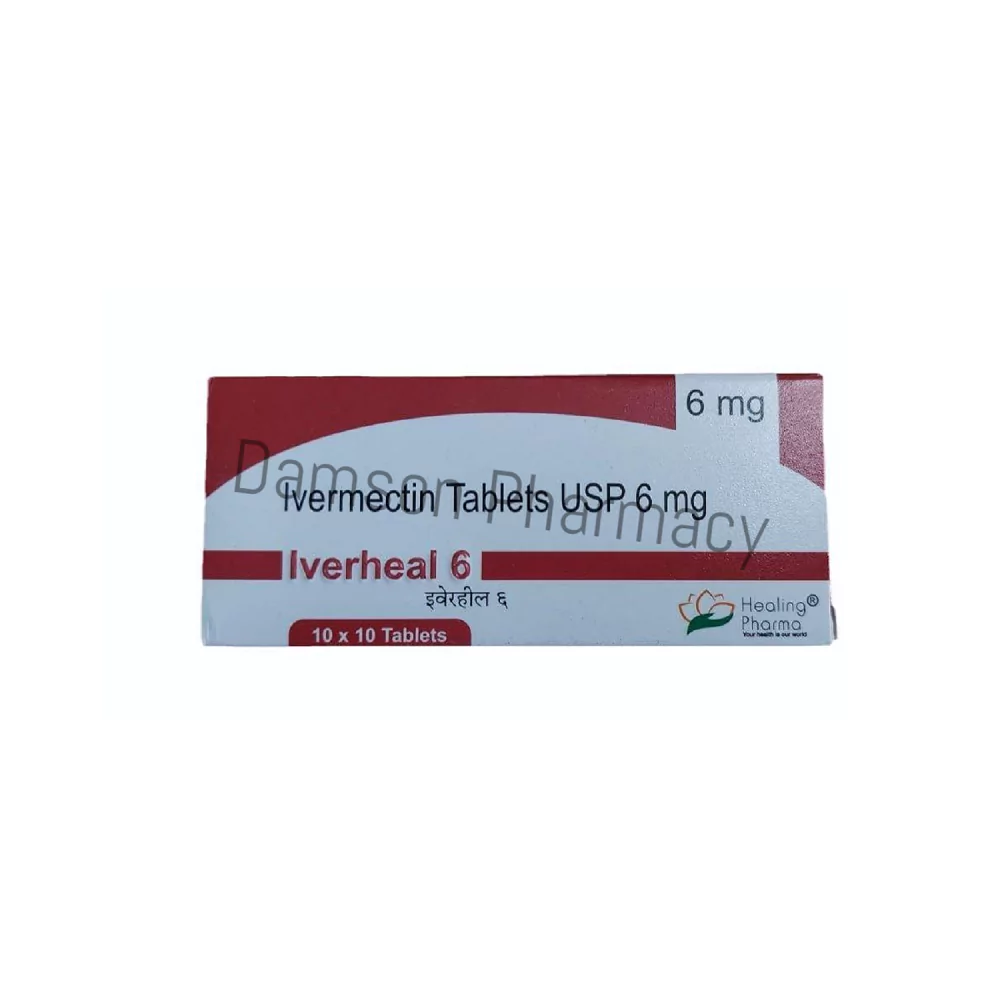
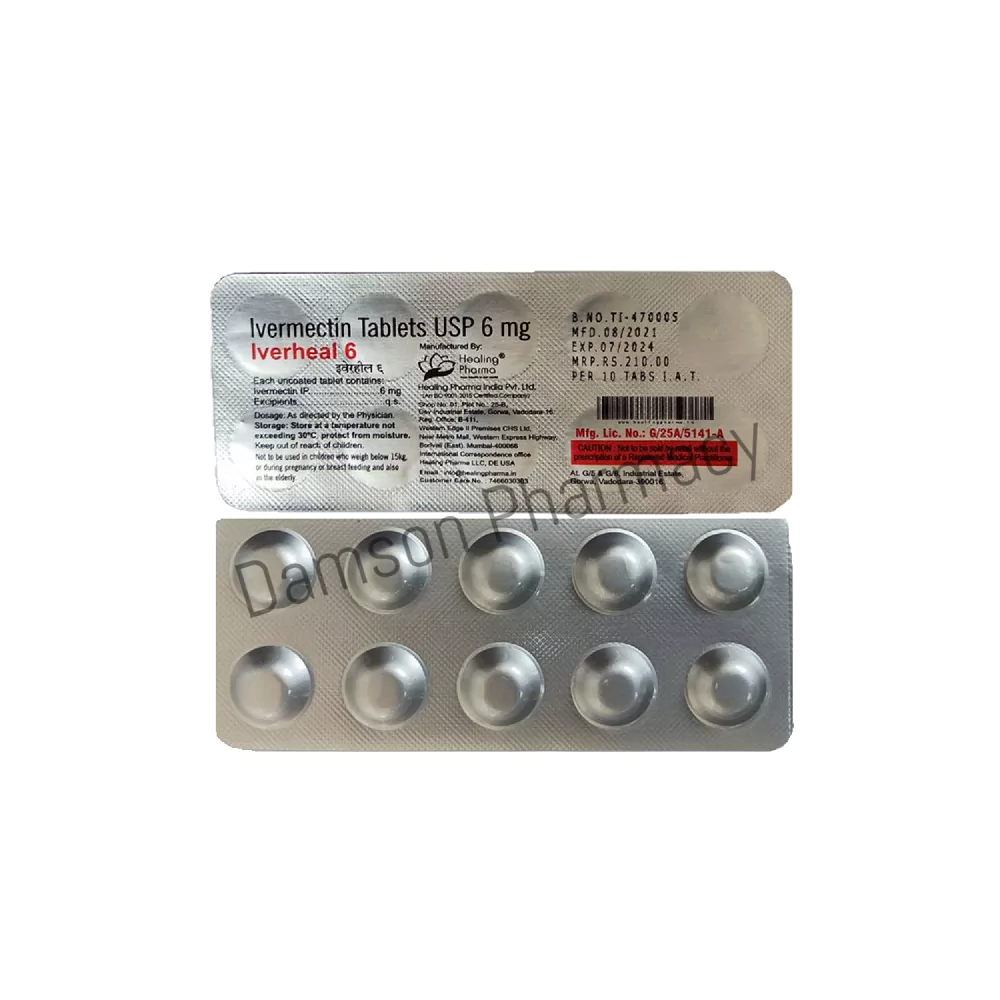
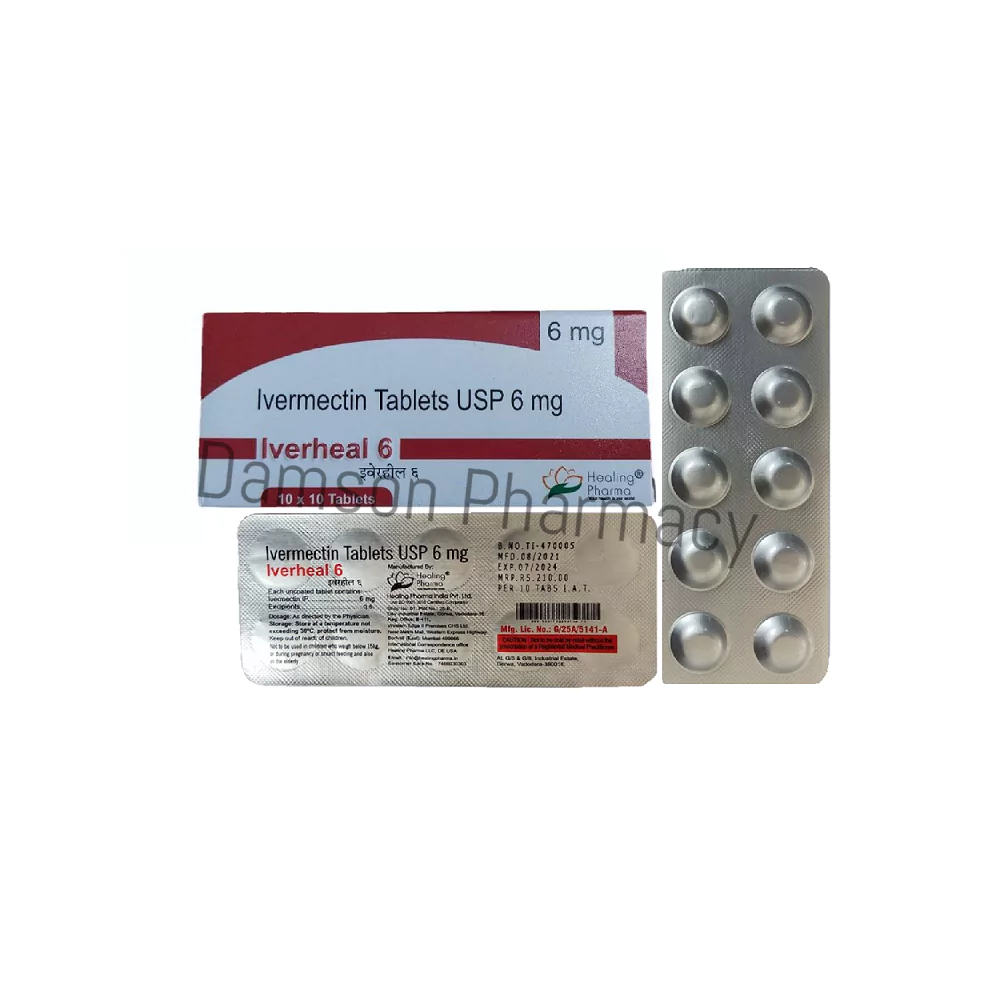
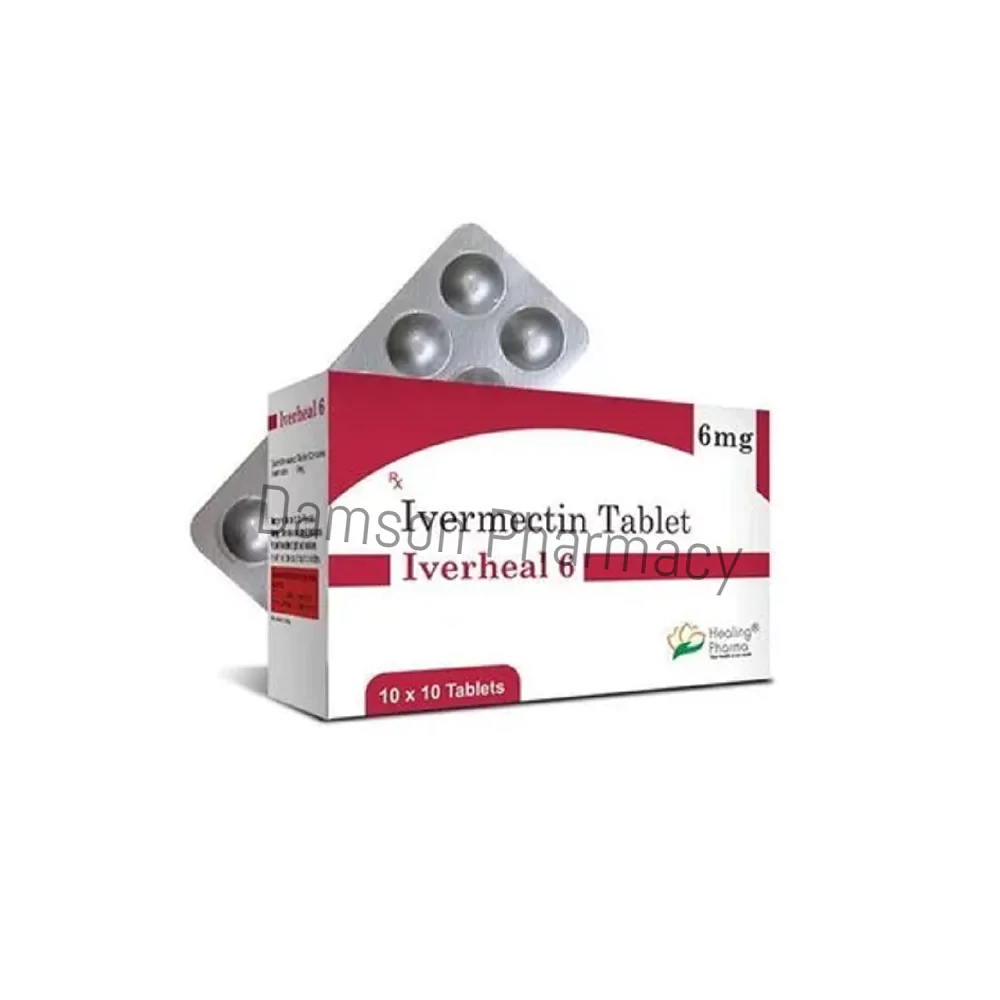
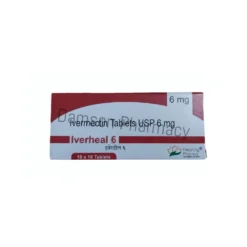
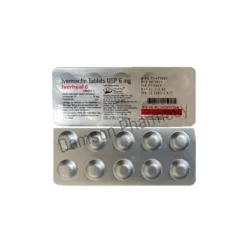
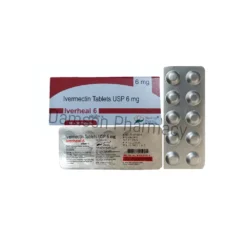
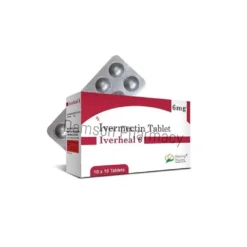
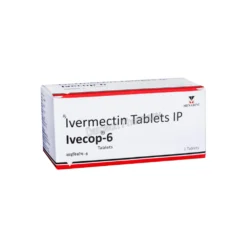
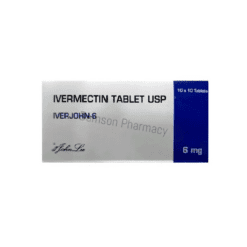

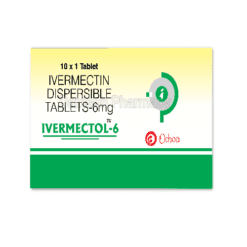
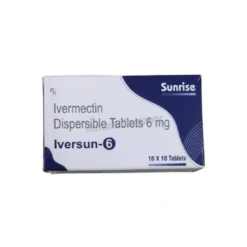
Ryatt –
Fast, easy, online chat
Leonardo –
Very reasonable prices and very quick service also
Rerelle –
Amazing Product and Amazing Services